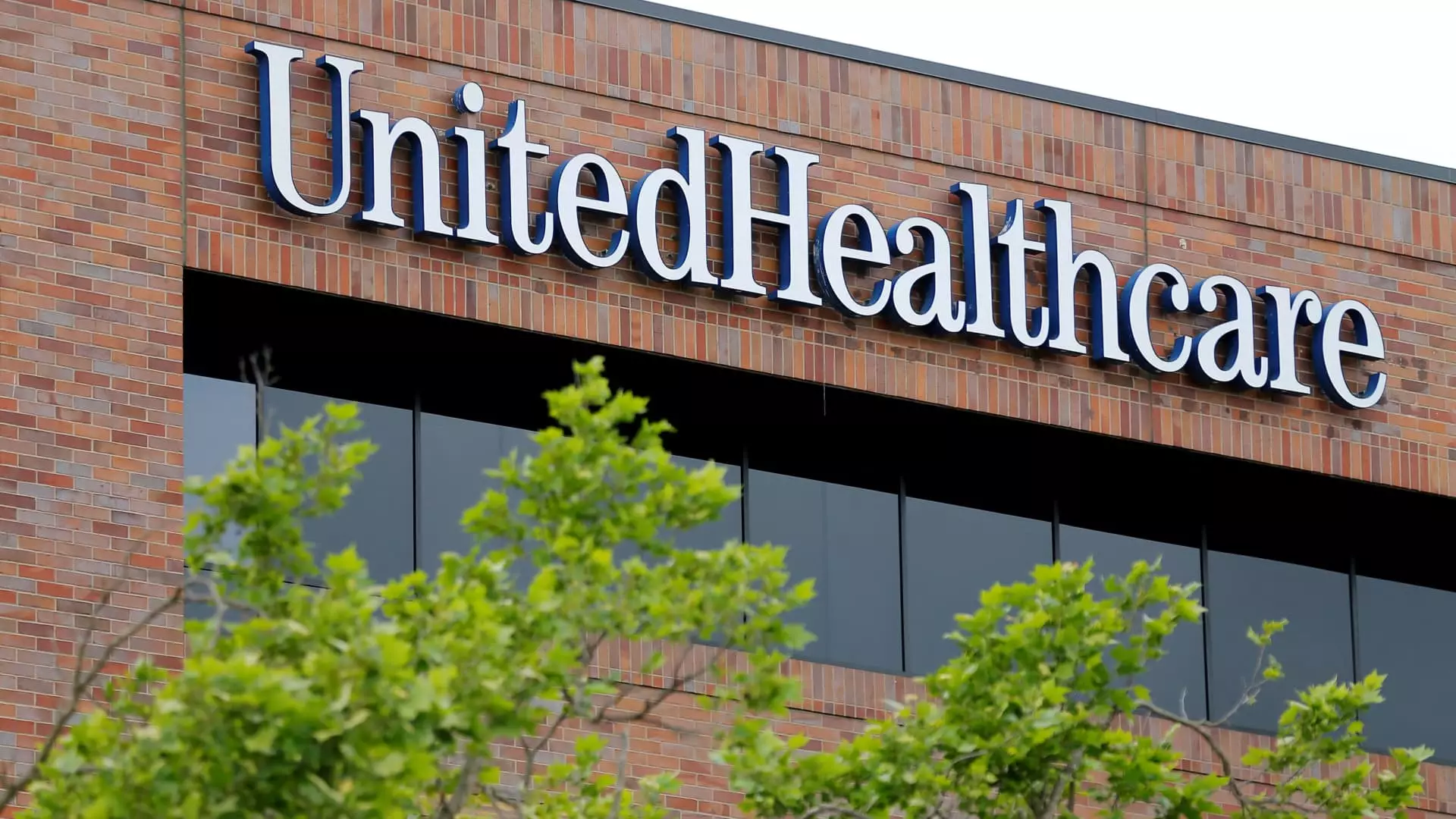UnitedHealthcare, the largest private health insurer in the United States, is currently navigating a barrage of adversities that threaten not only its market reputation but also its operational stability. As one of the major players in the healthcare industry under its parent company, UnitedHealth Group, the current state of affairs reveals a complex web of investigations, financial fluctuations, and public discontent. The accumulation of these issues could potentially reshape the company’s future, making its next moves particularly crucial.
In recent developments, UnitedHealthcare has come under the magnifying glass of the U.S. Department of Justice. A civil fraud investigation has been initiated, focusing on the company’s billing practices related to Medicare Advantage plans. Allegations suggest that UnitedHealthcare may have engaged in practices where routine diagnoses were artificially inflated to secure additional payments—a claim that, if substantiated, could have dire financial implications. Reportedly, past investigations have already revealed that Medicare disbursed billions of dollars to UnitedHealthcare based on potentially questionable diagnoses.
The complexity of Medicare Advantage adds another layer of intricacy to this situation. By contracting with private insurers such as UnitedHealthcare, the government aims to provide enhanced health benefits to seniors. However, increasing medical costs have become a hallmark of this model, raising concerns over sustainable practices within the insurance sector. In reaction to the allegations, UnitedHealthcare has categorically denied any impropriety, labeling the media reports as “misinformation” and asserting a strong commitment to regulatory compliance.
The financial markets are responding unfavorably to these revelations, with UnitedHealth Group shares tumbling approximately 23% over the past three months. A significant drop of 9% occurred following the news of the Department of Justice probe, indicating a notable investor sentiment shift. Analysts from RBC Capital Markets have classified the investigation as a potential “incremental overhang,” hinting at the prolonged and uncertain nature of the inquiry. This situation mirrors previous investigations, such as one targeting the subsidiary Optum Rx, suggesting that resolution may take considerable time.
The decline in stock performance comes at a time when companies strive for stability amid economic turbulence. With financial performance closely scrutinized, the fallout from these investigations threatens to usher in a broader reevaluation of UnitedHealthcare’s operational ethics, further complicating its public perception.
Alongside investigations, UnitedHealthcare is reportedly pursuing internal cost-cutting measures in response to rising operational expenses. The company is offering voluntary buyouts to its employees, with looming layoffs if required resignation targets are not met. This suggests deeper structural issues within the organization, probably stemming from the need to streamline operations while adapting to the challenges identified in recent audits.
Moreover, the company has signaled an effort to embrace digital technologies as part of its strategy to reduce costs, an approach prevalent across industries aiming to boost efficiency. However, the public’s response to these layoffs and the overall handling of operational costs will play an essential role in shaping employee morale and public opinion, complicating the company’s recovery trajectory.
Recent high-profile endorsements, such as that of billionaire investor Bill Ackman, have thrust UnitedHealthcare into further controversy. Ackman has publicly pledged to aid a Texas physician embroiled in a dispute with the company. His assertive stance has ignited discussions about the adequacy of care and ethical practices in the industry, which resonates with patients’ frustrations over denied services. This ongoing dialogue may promote a growing skepticism toward UnitedHealthcare’s operational decisions and financial metrics.
In addition to public ridicule and investor critique, the company is managing the remnants of a cyberattack that had a significant breach of sensitive data promoting widespread distrust. The cyberattack affecting Change Healthcare compromised the protected health information of around 190 million patients, leading to a hefty financial outlay exceeding $3 billion to cover the damages. The implications of such breaches extend beyond financial ramifications, affecting consumer trust—an essential component in the healthcare sector.
As a leader in the health insurance sector, UnitedHealthcare’s current predicament presents an important case study on the challenges faced by large corporations amid intense scrutiny and economic pressures. The outcomes of ongoing investigations, cost-cutting measures, and public sentiment will undoubtedly inform the company’s trajectory. With industry dynamics evolving at a rapid pace, the ability of UnitedHealthcare to effectively navigate these obstacles will be critical to reclaiming its standing, not only in the markets but among the very consumers it serves. As such, the company stands at a pivotal juncture in its corporate identity, facing the challenge of restoring trust while maintaining profitability in an increasingly complex landscape.

